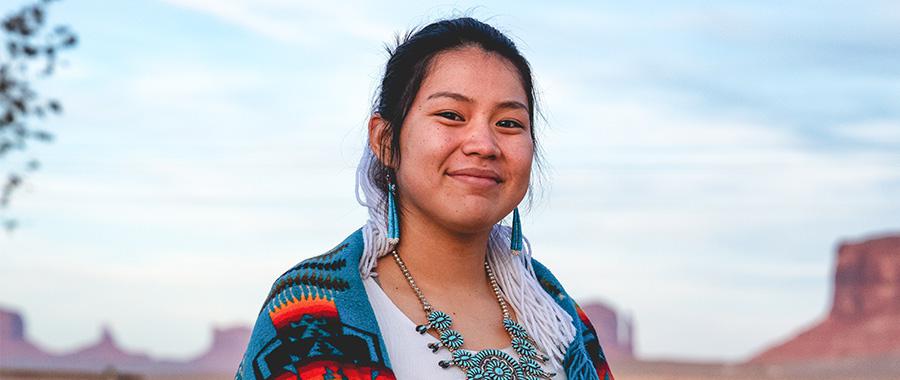The Bahá’í Faith, while rooted in the unity of all humanity and the oneness of God, presents an intriguing perspective on the interplay between its teachings and the rich tapestry of Indigenous spiritual traditions. What if there exists a profound connection between these seemingly disparate spiritual landscapes—a connection that transcends cultural boundaries and fosters a new paradigm of unity? This exploration not only challenges conventional narratives but also invites a re-examination of how diverse spiritual practices can coexist harmoniously in a globalized society.
To grasp the essence of this discussion, it is vital to unpack the central tenets of Bahá’í teachings and their implications for Indigenous spiritual traditions. At the heart of the Bahá’í Faith lies the principle of unity—both of humanity and of all religions—as expressed in the teachings of Bahá’u’lláh. He articulated the notion that every revealed religion represents a chapter in the ongoing revelation of God’s will, culminating in a universal message of peace, justice, and love. Therefore, the Bahá’í perspective posits that Indigenous spiritual traditions are not merely relics of the past but vibrant expressions of divinely inspired wisdom.
However, the juxtaposition of Bahá’í principles with Indigenous beliefs poses a unique challenge. How can followers of Bahá’í faith actively engage with Indigenous spiritualities without appropriating or undermining their inherent value? This query invites deeper contemplation and calls for an understanding that respects the historical context and cultural significance of Indigenous practices.
One of the cardinal teachings of the Bahá’í Faith is the concept of ‘the oneness of humanity’. This principle resonates closely with many Indigenous worldviews, which often emphasize interconnectedness with the land, the community, and the cosmos. To cultivate a genuine appreciation of Indigenous traditions, Bahá’ís are encouraged to approach these rich traditions with humility, openness, and a spirit of learning. Engaging with Indigenous communities in meaningful dialogue can foster mutual respect, allowing Bahá’í teachings to enrich one another without engendering cultural hegemony.
The process of uniting these spiritual paradigms begins with recognizing and valuing the unique manifestations of truth within Indigenous belief systems. Indigenous spiritualities often encompass a myriad of practices and beliefs, emphasizing harmony with nature and a profound relationship with the Earth. These practices can serve as an enriching complement to Bahá’í ideals, presenting an opportunity for synergistic growth. Thus, Bahá’ís can learn to incorporate ecological consciousness and reverence for nature—principles that are deeply embedded in Indigenous spirituality—into their worldview.
Furthermore, the Bahá’í commitment to social justice and equality aligns closely with the struggles of Indigenous peoples worldwide. Historical injustices—ranging from colonization to cultural erasure—have shaped the spiritual and social landscapes of Indigenous communities. Bahá’ís are called to be advocates for change, recognizing the role of systemic oppression in the marginalization of these spiritual traditions. This advocacy must transcend mere sympathy; it should manifest in tangible actions that support the revitalization of Indigenous cultures and the restoration of their rights. Ultimately, this alignment becomes a practical application of the Bahá’í principle of service, aiming to uplift humanity in all its forms.
The enrichment of both Bahá’í and Indigenous spiritual traditions also invites a broader inquiry into the nature of spiritual fulfillment itself. How do these traditions collectively contribute to a more profound understanding of the human experience? The Bahá’í teachings espouse that the purpose of life is the cultivation of virtues, the attainment of knowledge, and the development of the soul toward a state of unity with God. Similarly, many Indigenous traditions view spiritual fulfillment as a journey toward harmony with all beings and the cosmos. By fostering a genuine exchange between these worlds, individuals can enhance their spiritual repertoire, drawing from the wealth of experiences and teachings available across cultures.
Nevertheless, there remains the imperative of introspection within this dialogue. Bahá’ís must critically evaluate their role as bearers of a universal message while remaining cognizant of the historical complexities surrounding Indigenous belief systems. A discerning approach necessitates active listening and a commitment to understanding the struggles faced by Indigenous communities, allowing for a transformative exchange of knowledge rather than one-directional impartation. This ethical engagement is indispensable for navigating the intricate landscape of spiritual inclusivity.
As Bahá’ís embark on this journey toward fulfilling Indigenous spiritual traditions, they may find that the key lies in their willingness to embrace vulnerability and uncertainty. The process of interweaving diverse traditions is fraught with challenges, but it also presents the possibility of forging new pathways toward understanding and harmony. By honoring the sacred wisdom of Indigenous cultures while embodying the teachings of Bahá’u’lláh, followers can help cultivate a world where unity transcends division and diversity becomes a source of strength.
In conclusion, the path to unity proposed by Bahá’í teachings through the respect and fulfillment of Indigenous spiritual traditions is not merely an ideal. It is an ongoing, dynamic engagement that requires earnest effort, reflection, and a commitment to justice. As the world grapples with increasing polarization, the Bahá’í calling to collaborate with Indigenous peoples offers a transformative model for building bridges across cultures, fostering a richer, more harmonious existence founded on the principles of respect, love, and interconnectedness.
